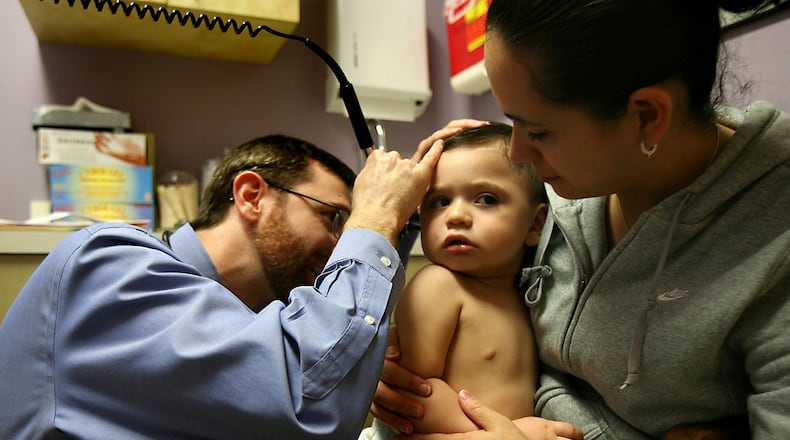Georgia ranks among the bottom 10 of states in a slew of health rankings: salmonella cases, chlamydia infections, low birth weights and more.
It may be no coincidence that Georgia also has some of the nation’s worst access to health care, with only three states outranking Georgia for lack of health insurance. More than 60 of the state’s 159 counties lack a pediatrician. Nearly half lack an obstetrician/gynecologist.
Those were some of the initial problems to surface in testimony Wednesday, as a state study committee held its first meeting at the Georgia Capitol. The group, called the Senate Study Committee on Barriers to Georgians’ Access to Adequate Healthcare, is led by Renee Unterman, R-Buford, chairwoman of the Senate Health and Human Services Committee.
Speaking after the meeting, Unterman praised a presentation on how nurses can be used to expand access. She said the committee would investigate changes in policy, laws and appropriations that could help remedy the state's plight, and she said she "definitely" saw an appetite in the Senate to act, even on funding.
"What is the alternative?" she said. "We've been kicking the can down the road. The can is down the road. It's in the ditch now."
One committee member who made an impression, herself, was Dr. Karen Kinsell, who is the only health care provider in Clay County and essentially works as a volunteer.
It was her first visit to the Capitol, she said, and though missing work meant missing patients, she said she hoped she could have a greater impact on the committee. “I was extremely impressed and heartened by the attendance and the true interest,” Kinsell said. The room was standing-room-only.
Kinsell said she sees about 30 patients a day, and many can’t pay and have nowhere else to go.
About the Author
Keep Reading
The Latest
Featured




